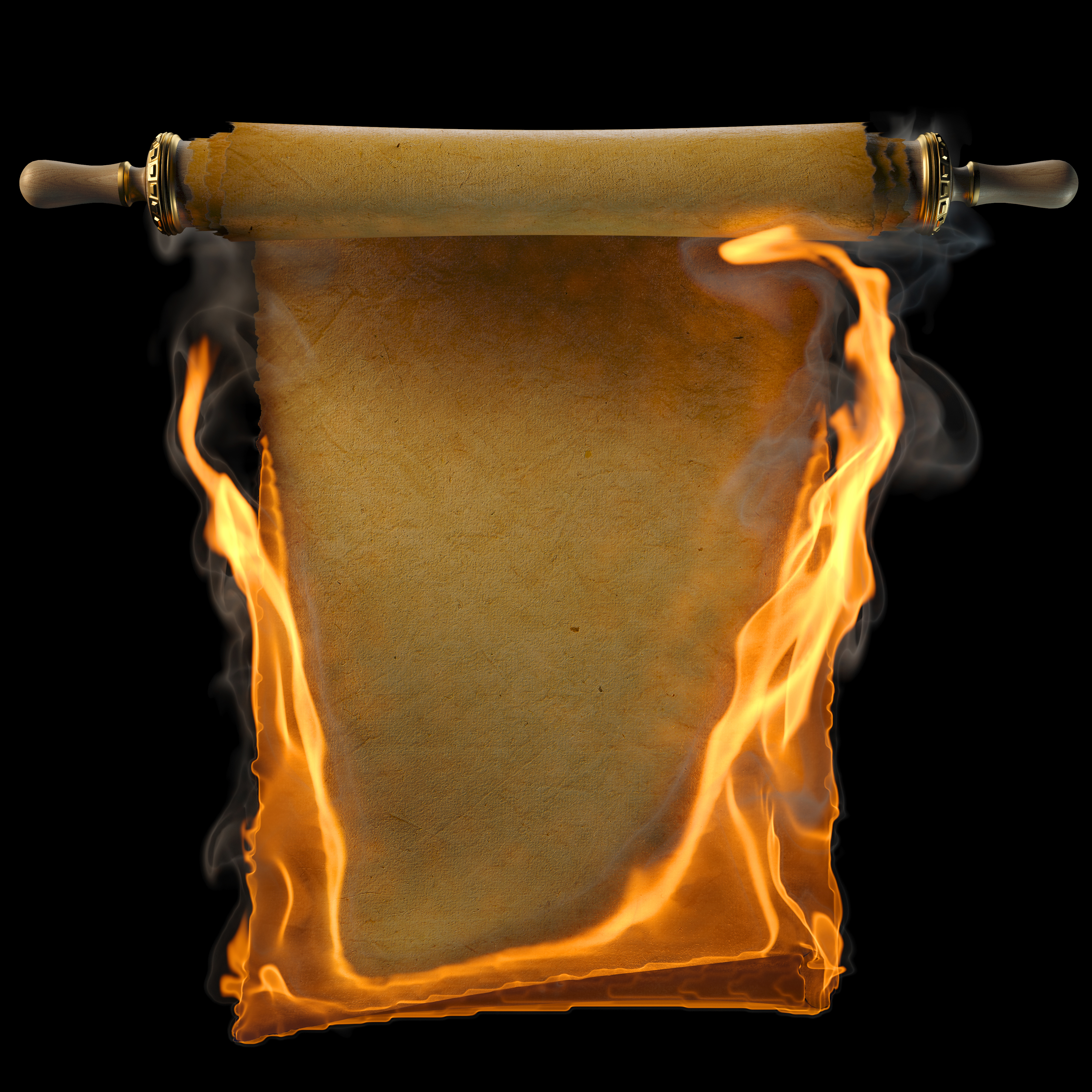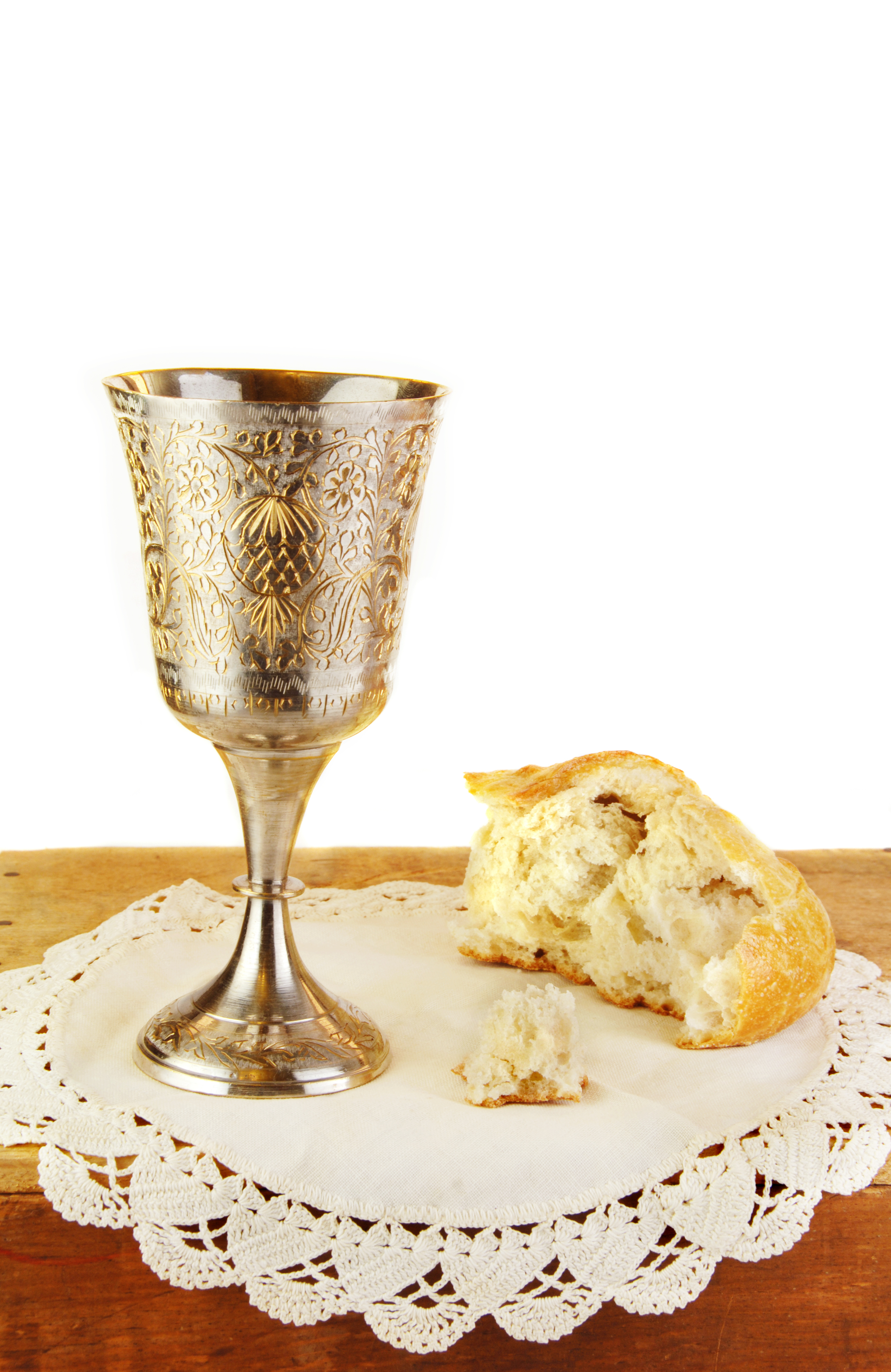Strange Fire

Leviticus 10
This solemn chapter is full of instruction, and in the time of departure in which we live is most needful. A number of important points may be seen here.
1. The worship of God must be free from human invention, v. 1
Aaron's two sons, Nadab and Abihu, took their censers and lit them with fire from a source other than the altar of burnt offerings and offered the incense before the Lord. It is most striking that in the last verse of the previous chapter we read of the fire coming out from the Lord and consuming the burnt offering and the fat. As there are no chapter divisions in the Hebrew text the narrative goes on uninterruptedly. This fact makes the sins of the two young priests the more stark, for it was immediately after the Lord Himself had ignited His fire on the altar that they ignited theirs, for the incense, with fire from another source. The Hebrew word which is translated "strange" means alien or foreign, and is from a root which signifies "to turn aside." The two young men had turned aside from what was due to the holy Lord and from the due order of His worship to introduce ideas alien to His order. On more than one occasion we see the Lord showing His approval by sending out fire from Himself to consume the sacrifices. Some confirmed the acceptableness of the offering, and Cain was shown that his offering was not acceptable. If fire from the Lord consumed Abel's offering and this was withheld from Cain's offering, it would be clear enough. While there is no text to support this idea, it is true that other instances of such divine approval are not wanting. We have already noticed one in chapter 9. The fire of the Lord also fell on Elijah's sacrifice on Carmel and on Solomon's offerings at the dedication of the temple (2 Chr. 7:1). This may establish the principle that the fire of approval must be from God and that alien fire is not permissible.
There could have been collusion between the two priests. We read that they took "each of them his censer and put fire therein." It may be that they discussed this matter and agreed to introduce this novel manner of worship. It was their idea, not the Lord's commandment. It seems that no definite order had been given, but their sin consisted in doing what had not been commanded. Introducing ingenious human ideas into the worship of the Lord is, without doubt, fraught with danger. Immediately after they were struck down in judgment, Moses understood the meaning of it and said, "This is that the Lord spake: I will be sanctified in them that come before me." The Lord Himself knows perfectly what is acceptable to Him in our worship and our inventions do not come into that class.
2. The worship of God must be free from human inspiration, v. 9
Conjectures on what caused the two young men to attempt the substitution of strange fire for fire from the altar have been made, and some have concluded that they were drunk and that, for this reason the Lord then introduced the prohibition of alcohol when the priests were serving in the tabernacle. They could have been drunk, of course, but it would appear to be an error to think that the Lord needed such a mistake to induce Him to bring in a new rule of conduct for the priests. The fact is that as priests of the holy Lord they ought to have understood the need for sobriety and orderly behavior in the Lord's presence. There is at least one scriptural example of the danger of such insobriety. Noah had built an altar and offered sacrifices on it which had been acceptable to the Lord, and then he got drunk. There could be no place in divine service for such behavior. Things other than alcohol may provide such human stimuli and they can be seen everywhere in Christian circles today. The frothy ‘pop' of so-called gospel-singing may be one example. Nothing that is not of divine origin, that is not of the Spirit, can have a place in God's service. We are advised: "Be not drunk with wine, but be filled with the Spirit." The apostle goes on to speak of singing and among his suggestions are spiritual songs, not songs of worldly origin.
3. The worship of God must be free from human inflation, v. 12
The influence of leaven is well known. In spite of attempts to give it a different meaning in Matthew 13, it seems, on the contrary, universally to have an evil meaning. When leaven is mixed with dough it permeates the lump and has the effect of inflating the entire mass. In this scripture the Lord prohibits its use for serving priests. Nothing that has the effect of enlarging man or of inflating his sense of his own importance can be tolerated in presence of the Lord. Leaven, thought of as evil doctrine, always makes much of man after the flesh. The truth of God shows that man of that order has been set aside altogether, not made much of. The only fitting attitude for man in his approach to God is one of true subjection and deep humility. God is concerned about His own glory (v. 3) and anything which is in any sense contrary to His honor, or would militate against it, is banned from His holy presence. In the instructions concerning His house God had made it known that there were to be no steps up to His altar. We are to approach Him in worship on the lowly ground, which is our true place in His presence. When He wishes to exalt us, He will do so in His own time (1 Pet. 5:6). Meanwhile, our proper place before Him is one of conscious lowliness and dependence.
4. The worship of God is to be without human impurity, vv.12-14
Man's uncleanness, by nature, could find no place of standing in God's presence. We can stand there only as cleansed persons. We see how impure Isaiah felt himself to be as he saw the Lord high and lifted up. Job also, though the best man on earth in his day, felt how unclean he was when his eye saw the Lord. Our mortal taint is well enough known to us; how infinitely more so to a holy God! The words "most holy" (v. 12), ‘holy place' (v. 13), and ‘clean place' (v. 14) strongly emphasize the need for purity in the service of God and in His worship. The idea of introducing the corrupt practices of the world around into His service is wholly obnoxious.
5. The worship of God is to be without human infirmity, v. 19
Aaron and his two surviving sons had neglected to carry out their service with regard to the sin offering (v. 16). Its blood had not been sprinkled in the holy place nor had they eaten its flesh there. Aaron and his family had suffered a traumatic experience which would certainly affect them profoundly, but they were instructed not to give way to the normal expressions of human sorrow and to remain in the precincts of the Lord's house (vv. 6-7). Significantly, they were reminded that the anointing was on them. Even under the pressure of such grief, they were to behave as the Lord's anointed priests and not allow natural sentiments to intrude into their service as His priests and in His holy presence. However, Moses being human, probably feeling his own frailty and failure, understood the failure of his brother and his sons, the two young priests, and seemed mollified by Aaron's plea (v. 19). However, as we see in the text, what they had omitted to do was really the Lord's commandment and they ought to have obeyed those instructions whatever else happened. The two sons who died had done what the Lord had not commanded; Aaron and his other sons failed to carry out what the Lord had commanded. But human infirmity, however much we understand it and are marked by it, has no place in the service of God.
The serving priests were to eat the flesh of the sin offering. It was their duty, by eating the offering, to identify themselves with the nation in the sin which had occasioned the offering. Such an act would have had very striking significance in the circumstances of Nadab and Abihu's sin. The rebellion which had promoted their disobedience was a human feature which could easily exist in their own hearts and so could readily develop. They were to be aware of this and, in the holy place, eat the sin offering. This serves to underline for us the solemn truth, "Let him that thinketh he standeth, take heed, lest he fall" (1 Co. 10:12). The sin which led a dear brother into defeat may easily be the one which brings about my own fall. Eating the sin offering would keep this truth alive in our minds.
One more point may be mentioned, concerning the wave-breast and the heave-shoulder (vv. 14-15). The food which the priest required to support them is found here. The wave-breast, taken from the breast of the offering, emphasizes the Lord's loving devotedness to the Father and to the completion of the work given Him by the Father to do. He had come to do His will and this would take Him to the cross, as we know. What enabled Him to go there, to endure all that such an experience would bring Him, was His deep and eternal love to the Father. As the priests take that in and feed on it, their souls are supported by it, and their affections are nourished.
Then the heave-shoulder was also to be eaten the holy place. It is often remarked that this portion of the offering emphasizes its strength. This is not without truth; however the most powerful muscle in the ox is the huge ham muscle, and the great strength of the ox to pull lies there. But the muscles of the shoulder are the fore-quarters, and while these powerful muscles play some part in the pulling power of the ox, they also control the direction of movement. It could be said of the Lord Jesus that he "steadfastly set his face to go to Jerusalem." This emphasizes the strength of His devotion and its direction. This is precious food for the serving priest, and as priests to His God and Father, we need to be nourished on such food, that our affections may be maintained and that the direction of our path may be pleasing to God, for we are to walk here even as the Lord Jesus walked.





